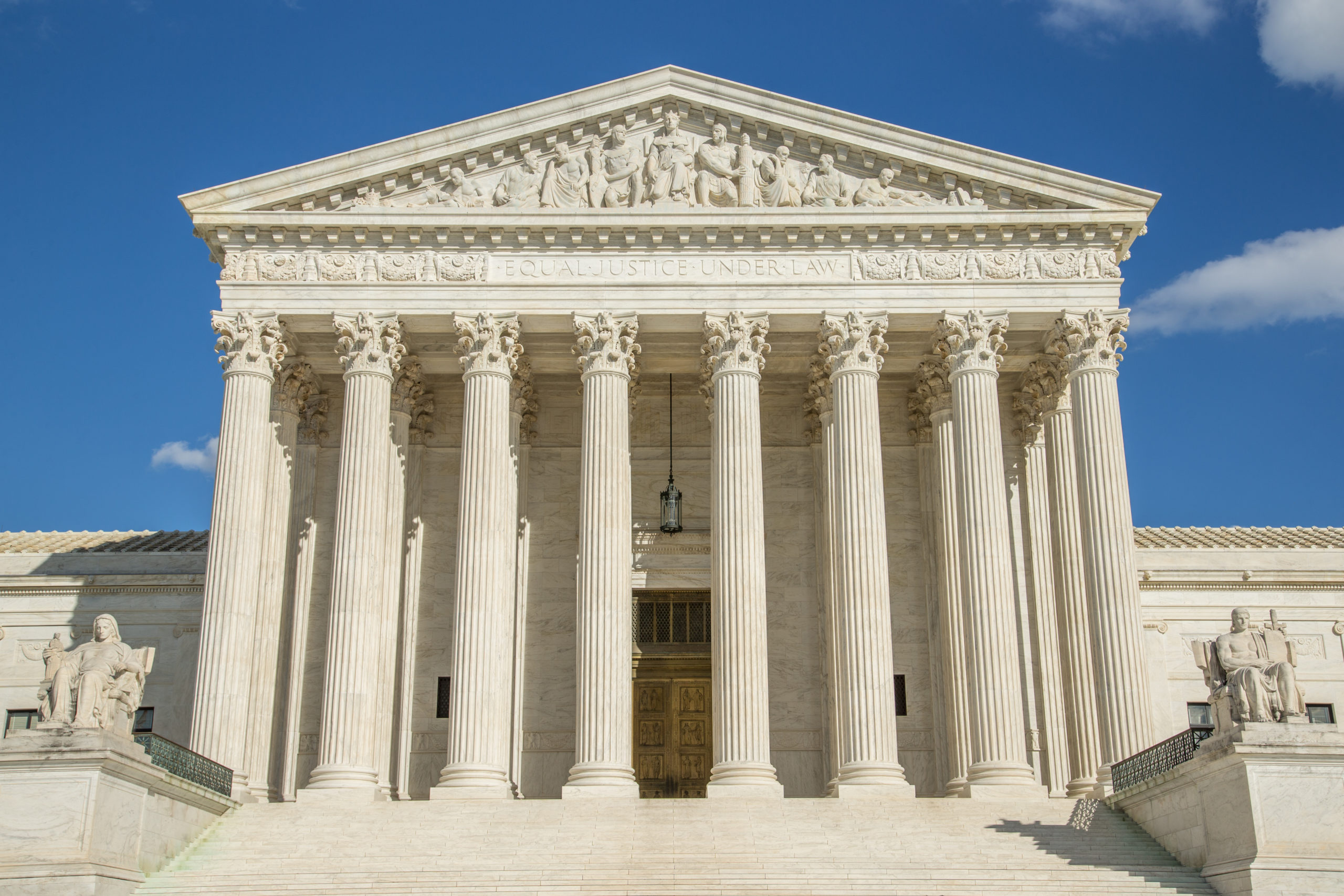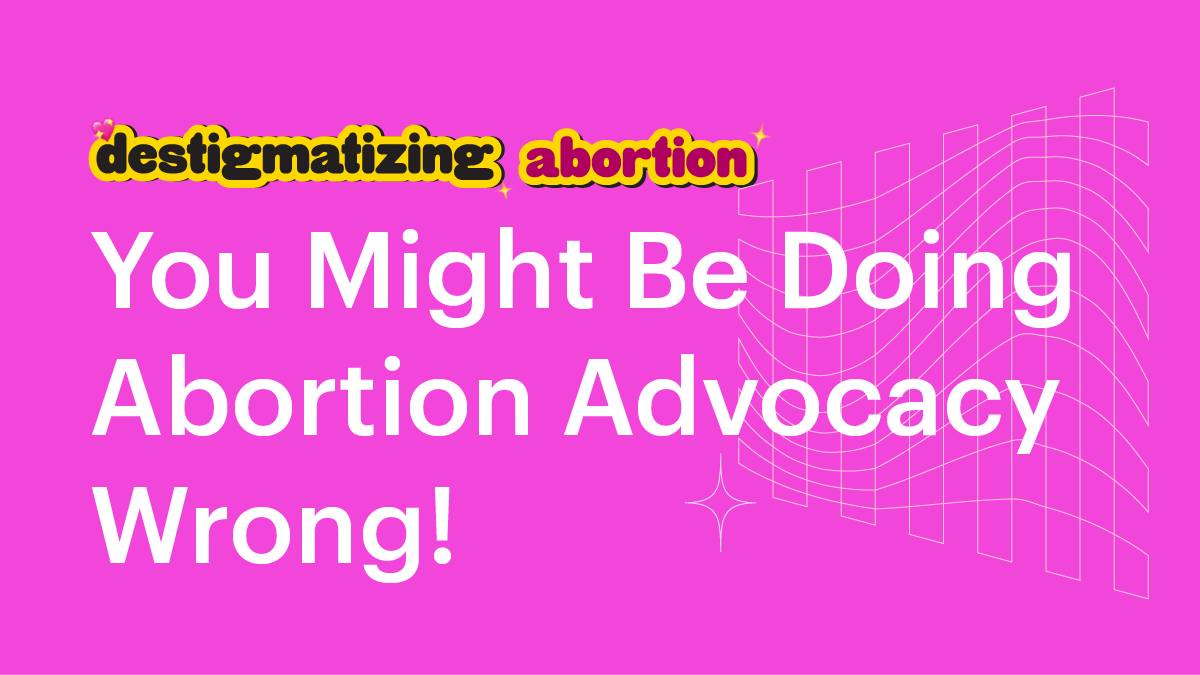Abortion rights, women of color, and LGBTQI+ people are under attack. Pledge to join us in fighting for gender justice.
This Week Before the Supreme Court: The Deceptive Practices of Anti-Abortion Counseling Centers

Tomorrow, the U.S. Supreme Court will hear oral arguments in NIFLA v. Becerra. In this case, anti-abortion counseling centers are challenging a California law, aimed at counteracting the deceptive practices of these centers, which deceive women, lie about medical facts, and delay access to comprehensive reproductive or prenatal care. The CA law – the FACT Act – is a straightforward law that helps provide important, accurate, and honest information to pregnant women and those who think they might be pregnant and makes sure women receive accurate information about their full range of options and programs related to pregnancy and family planning.
While reproductive rights advocates rally tomorrow morning in support of this straightforward law and what it stands for, we’ll also be thinking about the women who have been impacted by the deceptive practices of CPCs.
Sam wanted a clinical pregnancy test to confirm whether she was pregnant, so she searched the internet for “free pregnancy test” and found a place near her home advertising for free pregnancy tests. Sam had made up her mind to have an abortion if she was in fact pregnant. She thought, based on their advertising that the center she decided to visit would be a clinic providing all of her options.
At the center, Sam’s pregnancy was confirmed with a free pregnancy test. When she asked about available resources and options, the facility told her about church counseling, and continued to talk exclusively about “life” and adoption. Sam had not known that the facility was religiously-affiliated, and she found it upsetting to her to be talked to in a religious way when they didn’t know her religious beliefs.
Sam was sure of her decision about obtaining an abortion, but found her experience at the anti-abortion center to be emotionally scarring. She worries about others that will have the same experience, especially immigrant women – like her – that don’t know about the legality of abortion in the United States.
A Texas physician, “Dr. S.,” described an experience that she had with a patient last year. The patient’s first question for her was “you do abortions here, right? Do you promise?” because she had been lied to by an anti-abortion counseling center earlier in her pregnancy. The anti-abortion counseling center told the patient they offered abortion services at their center, but that she was “too early” to get an abortion, so she would have to come back in several weeks. When she went back they told her to come on a different day for an appointment with the doctor and when she went back that day they told her the doctor was out of town and she would have to come back in several weeks for a new appointment. She dutifully did. She eventually realized the center was being dishonest, and was never going to provide her the abortion she wanted, and was simply trying to delay her access to care. By the time she saw Dr. S., she was in her second trimester. Referencing the woman’s delayed care, which resulted in a more expensive and complex procedure, Dr. S. said the “whole thing was heartbreaking.”
Annie was a high school student in Florida who thought she might be pregnant. She was nervous about telling her mother about her pregnancy, so she decided to go with a friend to a pregnancy center where she had seen a sign for “free pregnancy testing,” located across the street from a Planned Parenthood. Given the center’s signage and advertising, Annie assumed it was also a full service reproductive health clinic, but with free services.
When Annie arrived at the center – which she later learned was anti-abortion – she walked into what seemed to be a medical facility. She was asked to complete a medical questionnaire, including questions about where she went to high school and the names and contact information for her parents.
A worker wearing scrubs at the center separated Annie from her friend, and brought her to a separate room, where she asked about her sexual history, shamed her for having premarital sex, told her that considering abortion wasn’t “very Christian of her”. She was not told that the center didn’t offer abortion, but instead was told medically inaccurate information about abortion, including that it causes infertility. Annie was given a pregnancy test that turned out to be negative. She then asked about getting birth control. In response, the anti-abortion pregnancy center told her – incorrectly – that birth control causes cancer.
The worker also told Annie that they planned to contact her high school and parents about her visit. When Annie left the anti-abortion counseling center, she felt ashamed from their invasive and harsh questioning and unsure about the information she received.
These stories, and others in our amicus brief in support of the California law, show the tactics that anti-abortion counseling centers use to mislead women and the harm that they cause. Anti-abortion counseling centers don’t have the right to deceive women, and the Supreme Court should take this opportunity to make clear that laws that protect women from deception and harm will stand.






